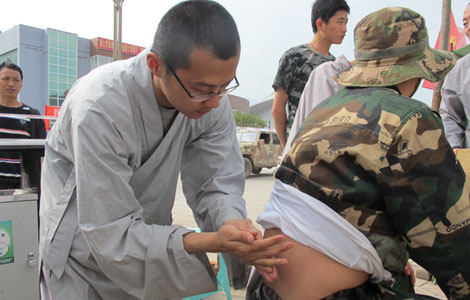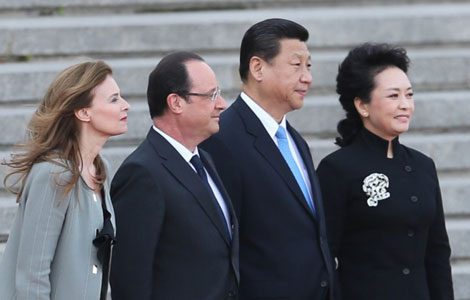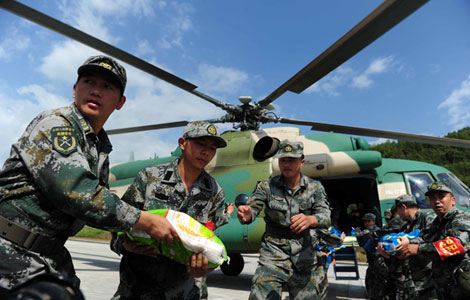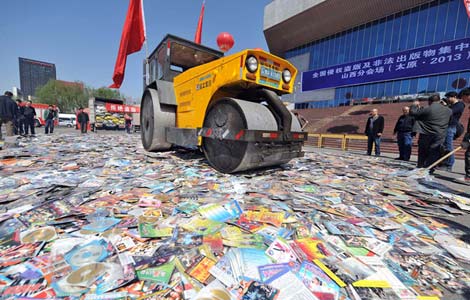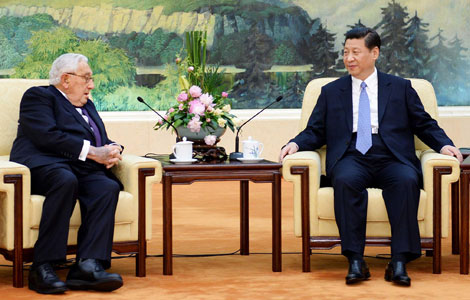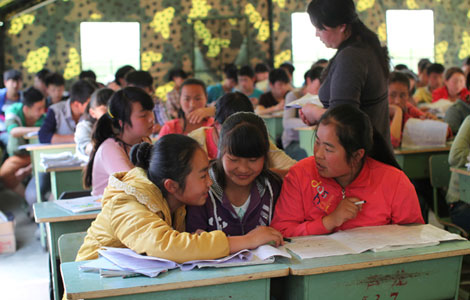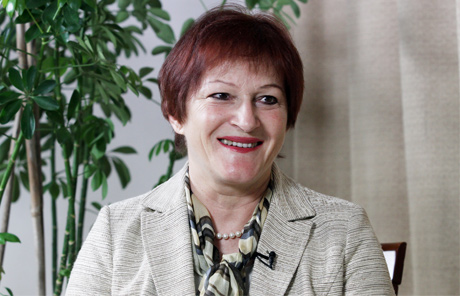Seoul delivers ultimatum to DPRK
Updated: 2013-04-26 07:35
(China Daily/Agencies)
|
||||||||
After weeks of threatening rhetoric from Pyongyang, Seoul promised on Thursday it could take its own unspecified "grave measures" if Pyongyang rejects talks on a jointly run factory park that has been shuttered for nearly a month.
The park in the border town of Kaesong, the Democratic People's Republic of Korea, is the most significant casualty yet of the recent deterioration of relations between the two neighbors. Pyongyang barred managers and cargo from the Republic of Korea from entering the DPRK earlier this month, then recalled the DPRK's 53,000 citizens who worked on the assembly lines.
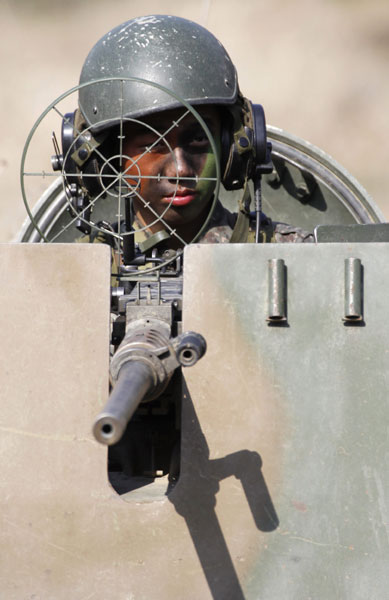 |
|
An ROK soldier in an armored vehicle participates in a joint military drill with soldiers of the United States near the Demilitarized Zone of the Korean Peninsula on Wednesday in Paju, north of Seoul. Lee Jae-Won / Reuters |
Seoul's Unification Ministry on Thursday proposed working-level talks on Kaesong and urged the DPRK to respond by Friday noon, warning that Seoul will take "grave measures" if Pyongyang rebuffs the call for dialogue.
Spokesman Kim Hyung-suk refused to say what those measures might be. Some analysts said Seoul would likely pull out the roughly 175 ROK managers who remain at the complex.
Kim said the ROK set a Friday deadline because the remaining workers at Kaesong are running short of food and medicine.
To resolve the deadlock, he said, Pyongyang should first allow some ROK citizens to cross the border to hand over food and medicine to the managers.
Pyongyang did not immediately respond on Thursday, according to the ROK Unification Ministry.
The demand for talks follows a lull in what had been a period of rising hostility between the two countries. Pyongyang has recently eased its threats of nuclear war and expressed some tentative signs of interest in dialogue.
Its demands, including dismantling all US nuclear weapons, go far beyond what Washington and Seoul will accept.
Symbol of cooperation
The Kaesong complex is the last major symbol of cooperation remaining from an earlier era that saw the neighbors set up various projects to facilitate better ties.
The factory park has operated with ROK know-how and technology and cheap labor from the DPRK since 2004.
More than 120 ROK companies operated at Kaesong before the DPRK workers stopped showing up on April 9. Raw material came from the ROK, with finished goods sent back. Last year, the factories produced goods worth $470 million.
The impoverished DPRK objects to views in the ROK that the park is a source of badly needed hard currency. The ROK companies paid salaries to DPRK workers averaging $127 a month, according to Seoul's government. That is less than one-sixteenth of the average salary of ROK manufacturing workers.
'Avoid but prepare for war'
The top US military officer said in Japan on Thursday that his troops were ready to act if Pyongyang turned its increasingly bellicose rhetoric into action, and "the best way to avoid war is to prepare for it".
"We are seeking to deter North Korea from provocation," General Martin Dempsey, chairman of the US Joint Chiefs of Staff, told soldiers at the Yokota Air Base, about an hour's drive west of the Japanese capital.
His remarks follow a visit to Seoul and Beijing, as regional tensions rise over fears about Pyongyang's recent threats to attack its southern neighbor and wage nuclear war on the US.
ROK citizens remaining at Kaesong are free to leave, but they have been staying to protect their companies' equipment and products. Their food, which was brought in before Pyongyang closed the border, is dwindling.
On Wednesday, ROK President Park Geun-hye said the country would not seek to resolve the Kaesong standoff by making concessions to Pyongyang.
"How the Kaesong issue is handled will be a touchstone for whether south-north relations will be predictable and sustainable," Park said.
"I want the issue to be resolved quickly, but I would say there should not be a solution like funneling aid, as has happened in the past."
AP-AFP
Most Viewed
Editor's Picks
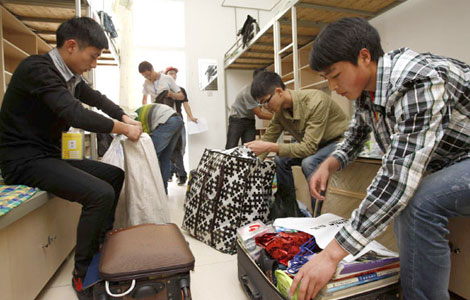
|

|

|

|

|

|
Today's Top News
Baoxing gets back to business, but fears linger
Innovation key for China, France
Six more H7N9 bird flu cases reported in China
China cuts gov't intervention to push reforms
Beijing rejects Manila move
Details on violent clash in Xinjiang
China reiterates to resolve territorial disputes
Phone bookings for taxis in Beijing
US Weekly

|

|
